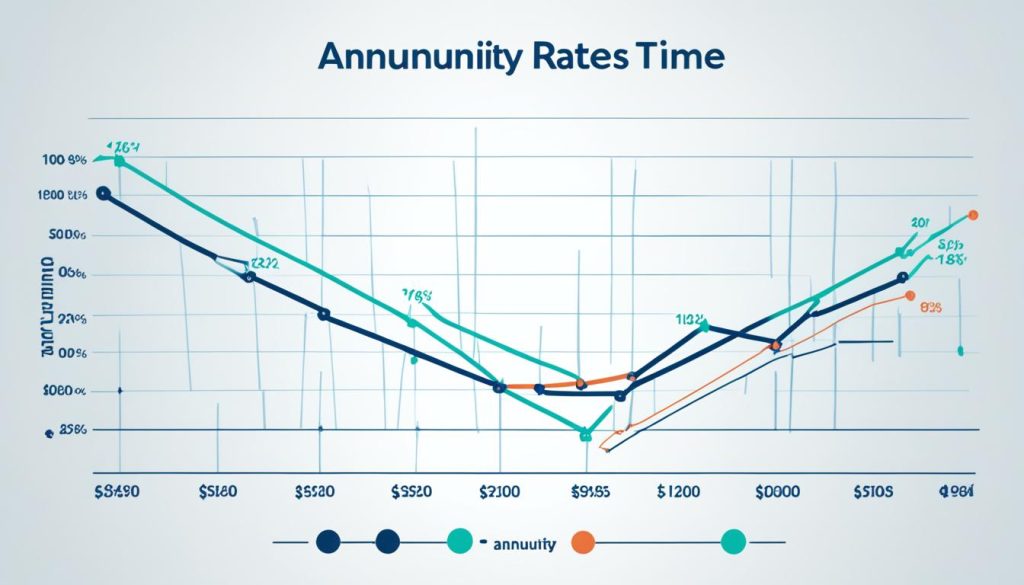Table of Contents
Even if retirement isn’t far away, there are ways to increase your retirement income. This applies both to your State Pension entitlement as well as to any personal or workplace pension pots you have. You still might have time to boost your pension by either saving more or delaying the date you start taking your retirement income. Additionally, if you have a defined contribution pension, you can make extra contributions to build up a bigger pot. It’s important to be aware of the annual allowance and the lifetime allowance limits that affect your contributions.
How to Maximize Your Pension in UK After 10 Years?
Delaying taking income from your workplace or personal pension can also be beneficial in increasing your pension in the long run. Lastly, making the most of your State Pension by ensuring you have the required National Insurance contributions is crucial for maximizing your pension after 10 years.
Maximizing your pension in the UK after 10 years requires careful planning and consideration. By saving more, delaying retirement income, and making the most of your State Pension, you can enhance your retirement income and ensure a comfortable future. It’s important to review your pension savings regularly, consider increasing contributions, and make use of available tax relief. If possible, delaying taking your pension can provide additional growth and income. Most importantly, ensuring you have the required National Insurance contributions for the full State Pension is crucial. By following these strategies, you can maximize your pension in the UK after 10 years and have a financially secure retirement.
Strategies to Increase Your Pension Savings
If you have a defined contribution pension, either through your workplace or one you’ve set up for yourself, making extra contributions can help you build up a bigger pension pot. By increasing your pension contributions with your employer or pension provider, you can boost your pension savings and secure a more comfortable retirement.
It’s important to be aware of the annual allowance limit for contributions, which is currently £60,000 for most people. This means that you can contribute up to £60,000 each year towards your pension without incurring any tax penalties. However, keep in mind that tax relief on contributions is limited to 100% of your earnings, so if your earnings are lower than £60,000, you’ll be entitled to tax relief only up to the amount you earn.
For high earners and those who have taken money from their pension flexibly, the annual allowance might be lower. Nevertheless, it’s possible to contribute more than the annual allowance by using unused allowance from previous tax years. This allows you to maximize your pension savings and make the most of any unused allowances you may have.
Lastly, while it’s important to focus on accumulating pension savings, it’s also crucial to consider the lifetime allowance limit. Currently, the lifetime allowance is set at £1,073,100. Although the lifetime allowance is due to be abolished in April 2024, it’s still important to be mindful of this limit and seek professional advice if you approach or exceed it.
By implementing these strategies and taking advantage of extra contributions, you can take control of your pension savings and ensure a more financially secure future.

Tips to Increase Your Pension Savings:
- Consider increasing your pension contributions with your employer or pension provider.
- Be aware of the annual allowance limit for contributions.
- Utilize unused allowance from previous tax years to contribute more than the annual allowance.
- Stay informed about the lifetime allowance limit and seek professional advice if necessary.
Benefits of Delaying Taking Retirement Income
Delaying when you’ll start taking your retirement income can have several benefits. For those with a defined contribution pension, delaying allows more time for contributions to the pension pot to potentially grow, resulting in larger savings by the time you retire.
It’s important to review the investment strategy to align with your retirement plans. By assessing your risk tolerance and adjusting your investment mix accordingly, you can maximize the potential growth of your pension fund over time.
Furthermore, delaying the start of your retirement income can also have advantages when it comes to annuities. Annuities provide a guaranteed income for life and are often a popular choice for retirees. As you grow older, annuity rates tend to offer higher income payments. By delaying the purchase of an annuity, you may be able to secure a higher income level in the future, as long as annuity rates remain favorable.

In addition, if you’re considering a flexible retirement income, starting later can provide you with a longer period of time to enjoy the benefits of this option. With a flexible income, you have the freedom to adjust your withdrawals based on your financial needs and circumstances. Delaying the start can ensure that your retirement income lasts as long as you need it to and potentially allows for a higher income at the beginning.
For those with a defined benefit pension, delaying the start can also result in a higher income and potential tax savings. With a defined benefit pension, the income you receive is based on factors such as your salary and the number of years of service. By delaying the start, you may receive a higher income based on a higher salary at a later retirement date. Additionally, by delaying, you can potentially save on taxes as you’ll have less taxable income during the years when you’re not receiving pension payments.
It’s important to consider the potential additional income you could receive by delaying, as well as the time needed to recover from missed income during the delay period. Speaking to your pension provider can help you understand the options available to you and any applicable charges for changing your retirement date.
Tips for Maximizing Your State Pension
To receive the full new State Pension of £203.85 a week, you need at least 35 qualifying years of National Insurance contributions. These contributions include both those you’ve actually paid and those you’re treated as having paid, such as during periods of caring for children or health problems. If you have fewer qualifying years, your pension entitlement will be proportionally lower.
To fill in gaps in your National Insurance record, you can make voluntary contributions within six years of missing the original payment. The cost and eligibility for voluntary contributions depend on your circumstances.
Additionally, delaying taking your State Pension can result in an increase of 1% for every nine weeks deferred, or just under 5.8% for every full year. This can be a good option if you plan to continue working and have sufficient savings to support yourself in the meantime.

By leveraging National Insurance contributions and considering voluntary contributions, you can ensure you meet the requirements for the full State Pension. Delaying taking your pension can also lead to increased benefits in the long term. These strategies can help you maximize your State Pension and secure a comfortable retirement.
Conclusion
Maximizing your retirement income in the UK after 10 years requires careful pension planning and consideration. By reviewing your pension savings regularly, increasing contributions, and making use of available tax relief, you can take a proactive approach to maximizing your pension. Additionally, delaying the start of your retirement income can provide the opportunity for your pension pot to grow further, potentially resulting in higher income when you eventually retire.
An important aspect of maximizing your pension is making the most of your State Pension. Ensuring you have the required National Insurance contributions is crucial for receiving the full State Pension entitlement. It’s also worth exploring options such as voluntary contributions to fill in any gaps in your National Insurance record.
By following these strategies and implementing sound pension planning, you can enhance your retirement income and work towards a financially secure future. Remember, it’s never too early to start thinking about your pension, and taking steps now can significantly impact your retirement lifestyle.

